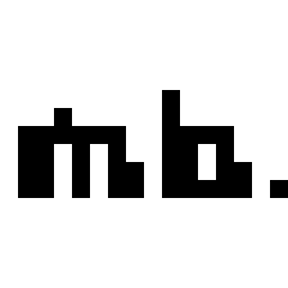Welcome to the Onshape forum! Ask questions and join in the discussions about everything Onshape.
First time visiting? Here are some places to start:- Looking for a certain topic? Check out the categories filter or use Search (upper right).
- Need support? Ask a question to our Community Support category.
- Please submit support tickets for bugs but you can request improvements in the Product Feedback category.
- Be respectful, on topic and if you see a problem, Flag it.
If you would like to contact our Community Manager personally, feel free to send a private message or an email.
How to join/knit adjacent surface bodies? joinSurfaceBodies?
 mahir
Member, Developers Posts: 1,320 ✭✭✭✭✭
mahir
Member, Developers Posts: 1,320 ✭✭✭✭✭
I'm trying to work around the shortcomings of using opBoolean to intersect multiple surfaces. To do this I've enlisted the help of opSplit, which has its own restrictions. Specifically, the target query can only contain one body. This is problematic when trying to find the intersection of a group of tool faces/bodies with a group of target faces/bodies. Instead of performing multiple splits on each combination/permutation of tool body vs target body, the easiest fix would be to combine all tools into one cohesive body, all targets into another body, and perform a split using those two surface bodies. Problem is I haven't found a way to implement this.
OS has an internal joinSurfaceBodies() function, but it's not exactly intuitive how to generate all the required inputs (matches, reconstructOp, etc). I hope this makes sense. I'd link to an example, but since it's not working it wouldn't be much help.
OS has an internal joinSurfaceBodies() function, but it's not exactly intuitive how to generate all the required inputs (matches, reconstructOp, etc). I hope this makes sense. I'd link to an example, but since it's not working it wouldn't be much help.
Tagged:
1
Best Answers
-
 MBartlett21
Member, OS Professional, Developers Posts: 2,064 ✭✭✭✭✭
@mahir
MBartlett21
Member, OS Professional, Developers Posts: 2,064 ✭✭✭✭✭
@mahir
I have a custom feature that will compute the inputs for opBoolean: https://cad.onshape.com/documents/84d939daceef6a928b8abcba5 -
 mahir
Member, Developers Posts: 1,320 ✭✭✭✭✭
For those that read this later, @mbartlett21's featurescript allows opBoolean to successfully perform a Union on adjacent surface bodies by computing matching edges with the following function. It's an elegant implementation and simpler than OS's createMatchesForSurfaceJoin().
mahir
Member, Developers Posts: 1,320 ✭✭✭✭✭
For those that read this later, @mbartlett21's featurescript allows opBoolean to successfully perform a Union on adjacent surface bodies by computing matching edges with the following function. It's an elegant implementation and simpler than OS's createMatchesForSurfaceJoin().function computeMatches(context is Context, id is Id, tools is Query) returns array { var partsToDelete = qNothing(); var returnArray = []; const allParts = evaluateQuery(context, tools); for (var i = 0; i < size(allParts); i += 1) { for (var j = i; j < size(allParts); j += 1) { if (i == j) { continue; } var matchMap = {}; var parts = qUnion([allParts[i], allParts[j]]); const booleanId = id + ("boolean" ~ i ~ "_" ~ j); try silent { opBoolean(context, booleanId, { "tools" : parts, "operationType" : BooleanOperationType.INTERSECTION, "keepTools" : true, "allowSheets" : true, "eraseImprintedEdges" : false }); partsToDelete = qUnion([partsToDelete, qCreatedBy(booleanId, EntityType.BODY)]); var intersections = evaluateQuery(context, qCreatedBy(booleanId)); for (var intersection in intersections) { // debug(context, qCreatedBy(booleanId)); var allVertices = evaluateQuery(context, qOwnedByBody(intersection, EntityType.VERTEX)); for (var k = 0; k < size(allVertices); k += 1) { for (var l = k; l < size(allVertices); l += 1) { if (k == l) { continue; } var vertex0 = evVertexPoint(context, { "vertex" : allVertices[k] }); var vertex1 = evVertexPoint(context, { "vertex" : allVertices[l] }); var matchingEdges = qContainsPoint(qContainsPoint(qOwnedByBody(parts, EntityType.EDGE), vertex0), vertex1); if (size(evaluateQuery(context, matchingEdges)) == 2) { matchMap = { "topology" : matchingEdges, "matchType" : TopologyMatchType.COINCIDENT }; returnArray = append(returnArray, matchMap); } } } } } } }
0 -
 MBartlett21
Member, OS Professional, Developers Posts: 2,064 ✭✭✭✭✭
MBartlett21
Member, OS Professional, Developers Posts: 2,064 ✭✭✭✭✭
@mahirmahir said:For those that read this later, @mbartlett21's featurescript allows opBoolean to successfully perform a Union on adjacent surface bodies by computing matching edges with the following function. It's an elegant implementation and simpler than OS's createMatchesForSurfaceJoin().function computeMatches(context is Context, id is Id, tools is Query) returns array { var partsToDelete = qNothing(); var returnArray = []; const allParts = evaluateQuery(context, tools); for (var i = 0; i < size(allParts); i += 1) { for (var j = i; j < size(allParts); j += 1) { if (i == j) { continue; } var matchMap = {}; var parts = qUnion([allParts[i], allParts[j]]); const booleanId = id + ("boolean" ~ i ~ "_" ~ j); try silent { opBoolean(context, booleanId, { "tools" : parts, "operationType" : BooleanOperationType.INTERSECTION, "keepTools" : true, "allowSheets" : true, "eraseImprintedEdges" : false }); partsToDelete = qUnion([partsToDelete, qCreatedBy(booleanId, EntityType.BODY)]); var intersections = evaluateQuery(context, qCreatedBy(booleanId)); for (var intersection in intersections) { // debug(context, qCreatedBy(booleanId)); var allVertices = evaluateQuery(context, qOwnedByBody(intersection, EntityType.VERTEX)); for (var k = 0; k < size(allVertices); k += 1) { for (var l = k; l < size(allVertices); l += 1) { if (k == l) { continue; } var vertex0 = evVertexPoint(context, { "vertex" : allVertices[k] }); var vertex1 = evVertexPoint(context, { "vertex" : allVertices[l] }); var matchingEdges = qContainsPoint(qContainsPoint(qOwnedByBody(parts, EntityType.EDGE), vertex0), vertex1); if (size(evaluateQuery(context, matchingEdges)) == 2) { matchMap = { "topology" : matchingEdges, "matchType" : TopologyMatchType.COINCIDENT }; returnArray = append(returnArray, matchMap); } } } } } } } <b>try silent { opDeleteBodies(context, id + "deleteMatchBodies", { "entities" : partsToDelete }); } return returnArray; }</b>
You forgot the little bit on the end
5
Answers
I have a custom feature that will compute the inputs for opBoolean: https://cad.onshape.com/documents/84d939daceef6a928b8abcba
IR for AS/NZS 1100
function computeMatches(context is Context, id is Id, tools is Query) returns array { var partsToDelete = qNothing(); var returnArray = []; const allParts = evaluateQuery(context, tools); for (var i = 0; i < size(allParts); i += 1) { for (var j = i; j < size(allParts); j += 1) { if (i == j) { continue; } var matchMap = {}; var parts = qUnion([allParts[i], allParts[j]]); const booleanId = id + ("boolean" ~ i ~ "_" ~ j); try silent { opBoolean(context, booleanId, { "tools" : parts, "operationType" : BooleanOperationType.INTERSECTION, "keepTools" : true, "allowSheets" : true, "eraseImprintedEdges" : false }); partsToDelete = qUnion([partsToDelete, qCreatedBy(booleanId, EntityType.BODY)]); var intersections = evaluateQuery(context, qCreatedBy(booleanId)); for (var intersection in intersections) { // debug(context, qCreatedBy(booleanId)); var allVertices = evaluateQuery(context, qOwnedByBody(intersection, EntityType.VERTEX)); for (var k = 0; k < size(allVertices); k += 1) { for (var l = k; l < size(allVertices); l += 1) { if (k == l) { continue; } var vertex0 = evVertexPoint(context, { "vertex" : allVertices[k] }); var vertex1 = evVertexPoint(context, { "vertex" : allVertices[l] }); var matchingEdges = qContainsPoint(qContainsPoint(qOwnedByBody(parts, EntityType.EDGE), vertex0), vertex1); if (size(evaluateQuery(context, matchingEdges)) == 2) { matchMap = { "topology" : matchingEdges, "matchType" : TopologyMatchType.COINCIDENT }; returnArray = append(returnArray, matchMap); } } } } } } }You forgot the little bit on the end
IR for AS/NZS 1100
It now finds even more matches
IR for AS/NZS 1100